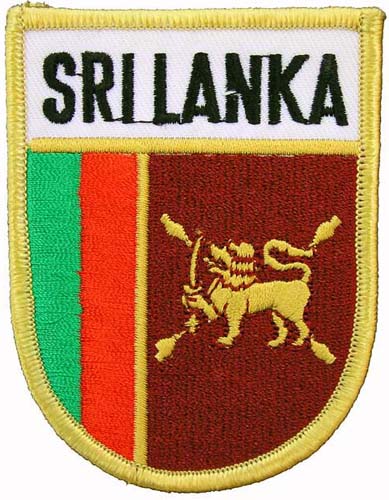The new education system, which was introduced in 1999 and fully implemented by 2000, includes changes from Grade 1 to 13. Age of admission to Primary School is 5 and since 1999 a new, child-centred integrated curriculum has been introduced as from Grade 1 itself.
Education: Primary and Secondary
At the end of the Senior Secondary, when the child has completed 11 years of formal school years, s/he sits for the Ordinary Level(O/L) exam. Passes in 6 subjects including three with C passes are required to enter the Collegiate Level.
At Collegiate Level, a student would learn 3 subjects for two years and sit for the GCE Advanced Level(A/L) exam. It is important to note that at the end of combined Primary, Secondary, and Collegiate education the student completes 13 years of formal education.
Another significant change was the re-introduction of English as the medium of instruction. The students are now given the opportunity to select their medium from a choice of the 2 native languages or English. More Sri Lankan students are now opting for English as their medium of instruction.
In addition, there are many international schools that coach students for the UK O/L and A/L exams.
Changes to the A/L syllabus were introduced in 1998 and the first batch of students sat the exam under the revised version in 2000. The primary change was the reduction of the number of subjects from 4 to 3. Prior to the change, a student studied each of the 4 subjects for 5.3 hours per subject per week for two years. But now, a student has to study each of the 3 subjects for 6.6 hours per week for two years. Two core subjects, namely, The Common General Paper (CGP), evaluating the candidate’s general knowledge and IQ and a General English paper were introduced. Whereas to be eligible for admission to university under the new scheme, a student must pass all three subjects as well as the CGP, the pre-2000 candidates needed only 3 out of 4 subject passes to qualify.
Admission to University is now based on the Z-score. In addition to merit, this system takes the difficulty level of the subjects taken into consideration when deciding on the cut-off mark for admission.
Education: University Level Studies
Sri Lanka has 13 National Universities and admission to them is based on all three passes at the Sri Lankan A/Ls. Due to restricted facilities admissions have become extremely competitive. Only 2% of the students who sit the A/L examination are admitted to the universities.
First stage: Certificate, Diploma, and Bachelor’s Degree.
Certificates and diplomas are conferred after one or two years. A Bachelor’s Degree after three years as a General Degree or after 4 years as a Special Degree. A degree in Medicine is awarded after 5 years of study with an additional year of internship, which is compulsory.
Second stage: Master’s Degree, M Phil, Postgraduate Diploma.
A Master’s Degree is obtained after two years of study beyond the Bachelor’s Degree and has a dissertation in addition to papers on theory. The M.Phil syllabus consists mainly of research and may go on for 3 years. Postgraduate Diplomas, unless stated otherwise, generally require one year of study.
Institutes recognized by the Ministry of Education (Sri Lanka) as degree granting authorities as of Feb.2004
 13 national Universities
13 national Universities
- University of Colombo
- University of Peradeniya
- University of Sri Jayewardenepura
- University of Kelaniya
- University of Moratuwa
- University of Jaffna
- University of Ruhuna
- Open University of Sri Lanka
- Eastern University, Sri Lanka
- Rajarata University of Sri Lanka
- Wayamba University of Sri Lanka
- South Eastern University of Sri Lanka
- Sabaragamuwa University of Sri Lanka
7 Other affiliated Institutes
- Institute of Aesthetic Studies
- Institute of Education
- Institute of Indigenous Medicine
- Gampaha Wickramarachchi Ayurveda Institute
- National Institute of Library and Information Sciences
- Institute of Technology
- School of Computer, University of Colombo
Other Degree Awarding Institutes
- Institute of Technological Studies: Bachelors Degree in Computer and Computer System Design
- Institute of Surveying and Mapping: Degree of Bachelor of Science (Surveying Science)
- Sri Lanka Institute of Information Technology (Guarantee) Ltd: Bachelor of Information Technology Degree.
- Sri Lanka Institute of Development Administration: Postgraduate Diploma in Public Management and Financial Management, Degree of Master of Public Management
- National Institute of Fisheries and nautical Engineering: Degree of Science in Fisheries and Marine Science (General & Special), Degree of Bachelor of Science in Marine Engineering (Special), Degree of Bachelor of Science in Boat Building & Naval Architecture (Special)